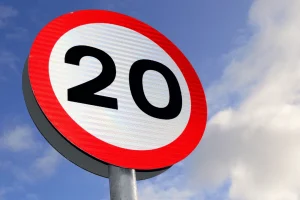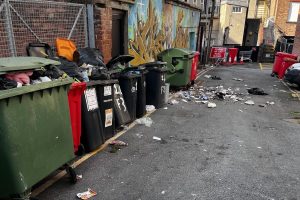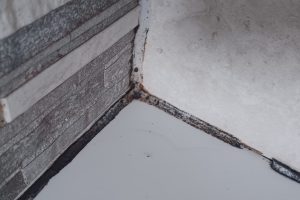VILLAGERS in North Wales have said they have had enough of the “appalling stench” of waste coming from Merseyside. While the bulk of household rubbish across the Liverpool City Region is dealt with at a facility in the North East of England, a portion of what we throw away sometimes makes it to a landfill site in Wrexham.
Now the “long-suffering” residents of Johnstown are calling for an end to our waste being dumped in their back yard. A campaign to close the Hafod landfill has gathered pace, prompting members to ask questions of Liverpool Council and how it treats household disposals.
The organisation that takes responsibility for getting rid of our cast offs, Merseyside Recycling and Waste Authority, said it would usually only use the site 36 miles away when it cannot access its usual Teesside location which processes waste to create energy. This has left campaigners asking why North Wales should “bear the burden” of our waste.
In a letter to Liverpool Council, campaigner Steve Gittins, who is part of the Against Hafod Landfill Site, wrote: “I write on behalf of the long-suffering residents of Johnstown, Wrexham, who have endured the worsening stench from Hafod Landfill Site, operated by Enovert, for over two decades. A key concern is that Liverpool and Merseyside’s household and business waste continues to be transported to Hafod, despite Wrexham successfully recycling 100% of its own waste.
“This raises serious ethical and environmental questions: Why should our community bear the burden of waste produced in Liverpool when our own waste policies prevent such harm?” Mr Gittins asked why Merseyside’s waste was transferred to Wrexham, “subjecting our community to unbearable odours and environmental degradation.”
Mr Gittins also highlighted the city’s poor recycling record, after data from 2022/23 revealed A mere 18% of household waste was re-used, composted, or recycled, a decrease from 20.4% 12 months previously and the second worst in the country.
Work by the city council identified how 40% of rubbish thrown in the purple main bin could be recycled. If the current blue recycling bin was used correctly, the city’s recycling rate could improve to 30%.
The campaigner wrote: “This failure to recycle at acceptable levels directly increases landfill reliance, and reinforces the injustice forced upon our local residents.” Annually, the city council collects more than 192,000 tonnes of household waste from around 240,000 properties.
In his message to the city, Mr Gittins said North East Wales needed to be removed from the equation when it comes to Merseyside’s clean up. He said: “The people of Wrexham must not be made to suffer for another 30 years due to waste policies that benefit Liverpool at our expense.”
Lesley Worswick, chief executive of Merseyside Recycling and Waste Authority, set out how the organisation leads on waste management across the six local authority areas in the Liverpool City Region. She said: “Residual household waste collected across the Liverpool City Region is managed under contract with Merseyside Energy Recovery Ltd (MERL) and under routine operations is delivered to an energy from waste (EfW) facility in Teesside.
“Household waste under MERL control is occasionally directed by them to a number of alternative facilities (such as during routine EfW plant maintenance or breakdown), with one of the alternative disposal facilities being Hafod Landfill Site. During contingency periods our contractor works to find alternate treatment sites and prioritises Energy from Waste Facilities.
“Where that is not possible MERL will direct the waste to be disposed of at alternative appropriately permitted sites including landfill sites but we are consistently working with MERL to reduce the need to use landfill. MRWA is also working across Liverpool City Region to change behaviours and educate residents on how they can reduce the amount of waste they produce, reuse and repair where possible and recycle as much as they can.”














